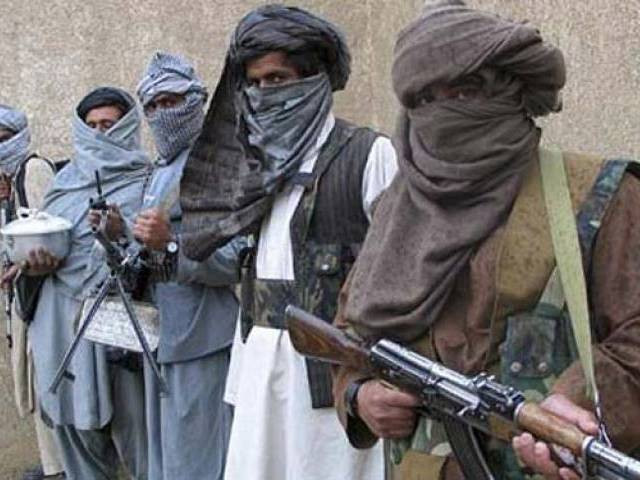Why Taliban would not accept a ceasefire offer
All stakeholders have to act fast

All stakeholders have to act fast. PHOTO: FILE
But there are important milestones to cross on way to a comprehensive agreement. These relate to the future governance systems, mechanisms to bring about a workable transition that would lead to a general election and the possibility of a ceasefire that would help create an environment for speedy implementation of the accords reached between the parties on some contentious issues.
The Taliban, however, are not enthusiastic about signing a ceasefire deal anytime soon. They believe any cessation of attacks would break the momentum of the insurgency. And that would stifle the growth not only of the movement but also would have the potential of causing a split in the ranks of the Taliban. More importantly they are convinced any ceasefire would disappoint the volunteers and demotivate them, thus dealing a crippling blow to the progress of the insurgency. The Taliban are of this view that any suspension of the attacks on government and foreign forces would abruptly transform the whole scenario, with volunteers going back to their farms, villages and not coming back to take up arms in case of a breakdown of the negotiations.
The Taliban also cite many other instances in the history of guerilla wars where ceasefires have had disastrous consequences on the course of the insurgencies and eventually compromises had to be made at the expense of the core values and objectives of the movements.
But the US could find a way around this obstacle. Talk of a ceasefire is premature at this stage of the negotiations .When some tangible progress has been made on the core contentious issues, there would be a certain degree of trust developing between the interlocutors. That will help in facilitating an agreement on a ceasefire.
After an agreement has been reached on the withdrawal of forces and some soldiers have left Afghanistan, there would be a strong case for the Taliban to agree to a ceasefire. The ceasefire could be implemented in stages – region- or province-wise. And as progress continues on the peace plan, the ceasefire could be extended to the whole country.
Equally importantly, there has to be some thinking on the next phase of the comprehensive agreement i.e. the formation of an interim government and its main four components of duration of the interim government, composition, mandate and who would lead such a government.
All these four elements of the interim package are crucial and would need to be mutually worked out in order to pave the way for a sustainable peace accord.
Peace agreement to end the conflict will not be reached unless the Afghan government makes a fundamental adjustment in its approach to reconciliation. The Kabul government will have to accept the reality of a new dawn for the beleaguered country and a nation that is sick and tired of an unending conflict. This new dispensation will have no room for entrenched vested interests in the government – those who want to protect and safeguard their perks, positions, privileges and authority, besides their swollen coffers.
Afghanistan’s unity and integrity is more sacrosanct than its institutions – whether parliament or cabinet or constitution.
Rulers in Kabul who hide behind the constitution must realise that any regime that does not have control over more than 50 per cent of its territory has to think out of the box to help bring about a change that would not only correspond to people’s aspirations and hopes but also usher in an era of peace and progress. For that to happen, some in the government will have to lose their positions of power and authority. To save Afghanistan is not a big deal.
All stakeholders have to act fast. There has been an increase in aerial attacks in recent weeks resulting in a large number of civilian casualties. There has also been an increase in the number of attacks on government and coalition forces. The Taliban have launched their spring offensive titled Al Fatah meaning victory.
Such frenzy of activity on the war front from both sides would only reinforce the argument that there is an effort to gain military advantage.
The US also has to show flexibility on the time frame for withdrawal of forces. Three years are obviously unacceptable to the Taliban .There could be an agreement on a time frame of one year. If an agreement is reached and a basic convergence of perceptions on key issues takes place then the issue of prolonging the presence of foreign forces would not be so crucial to the US agenda.
And lastly, Islamabad would be well advised to focus more on seeking a lasting solution to the long conflict than trying to restrict the role of some countries. Pakistan must demand that the Afghan soil would not be allowed to be used against its territory. But Afghanistan’s freedom to establishing relations with regional countries must be respected.
The situation warrants tremendous foresight. Afghanistan may be on the cusp of a historic breakthrough in its endeavour to seek peace and reconciliation. The lofty aim of a durable, institution-based peace should not be sacrificed at the altar of less substantial objectives like an immediate ceasefire or issues of time frame for withdrawal of forces.















COMMENTS
Comments are moderated and generally will be posted if they are on-topic and not abusive.
For more information, please see our Comments FAQ